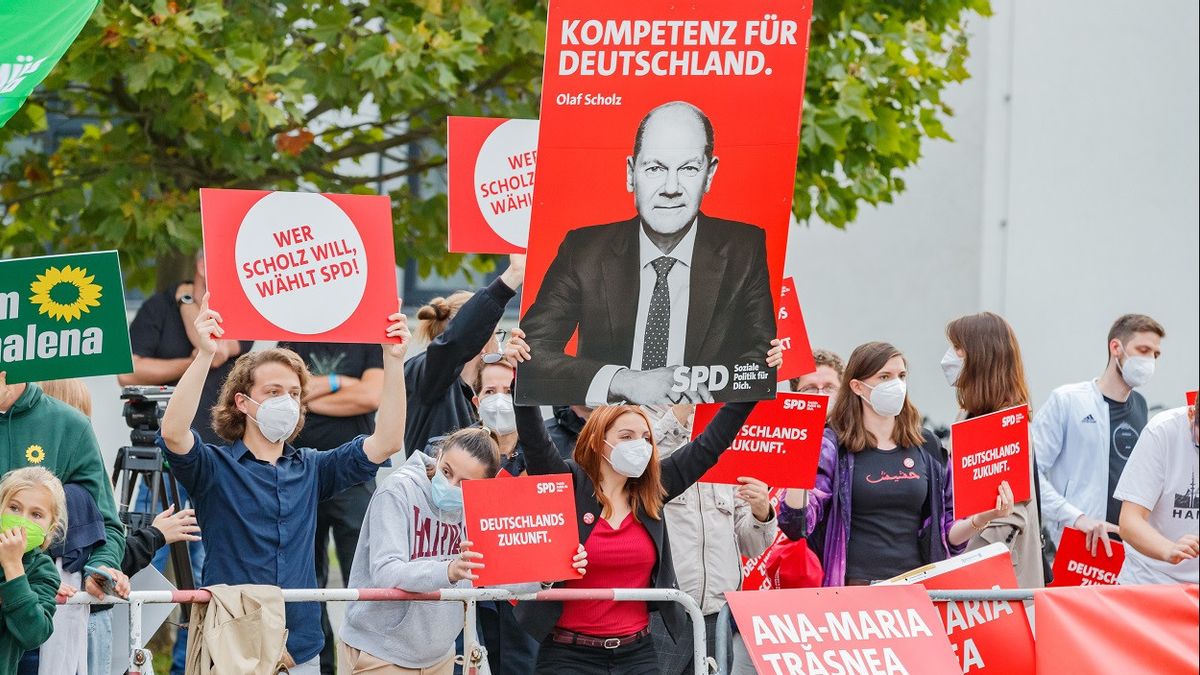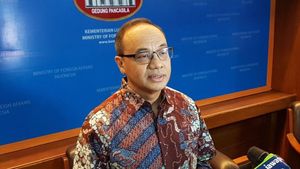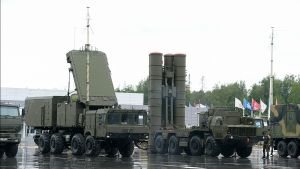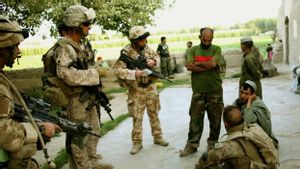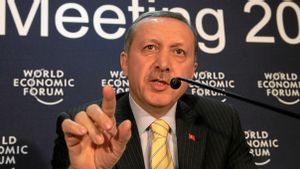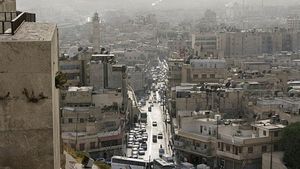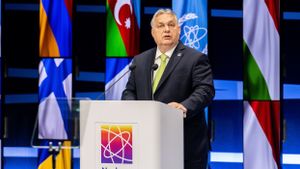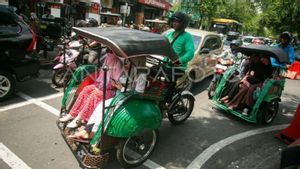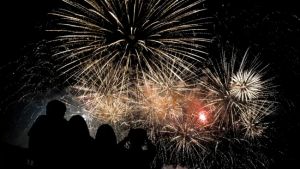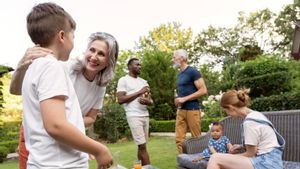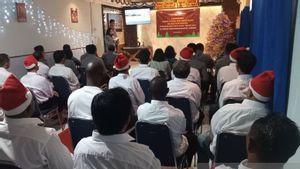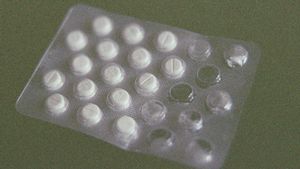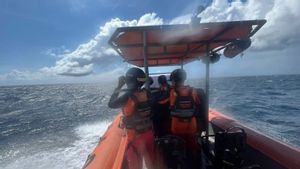JAKARTA - Germany's Social Democrats (SPD) narrowly won Sunday's national election, results projected to show and claim a clear mandate to lead a government for the first time since 2005, ending 16 years of conservative-led rule under Angela Merkel.
The centre-left Social Democrats (SPD) won 26.0 percent of the vote, narrowly ahead of Merkel's closest rival CD/CSU conservatives who won 24.5 percent of the vote, projections for broadcaster ZDF show, but both groups believe they can lead the next government.
With no major bloc holding a majority, and both reluctant to repeat their awkward grand coalition of the past four years, the most likely outcome is a three-way alliance led by the Social Democrats or Angela Merkel's conservatives.
Agreeing on a new coalition could take months, and will likely involve the smaller Greens and the liberal Free Democrats (FDP).
"We are ahead in all surveys right now," Social Democratic chancellor Olaf Scholz said in a roundtable discussion with other candidates after the vote.
"This is an encouraging message and a clear mandate to ensure that we get a good and pragmatic government for Germany," he added after earlier speaking to gleeful SPD supporters.
The SPD's rise marks the remaining swing for Germany and marks a remarkable revival for the party, which has recovered about 10 points of support in just three months to increase its 20.5% yield in the 2017 national election.
If his party wins the election, Scholz could become the fourth post-war SPD chancellor after Willy Brandt, Helmut Schmidt, and Gerhard Schroeder. The former mayor of Hamburg serves as Minister of Finance in Merkel's cabinet.
Scholz's conservative rival, Armin Laschet, has hinted his camp is not ready to give up, even if his supporters are subdued.
"It's not always the first to provide a chancellor," Laschet said. I want a government where every partner is involved, where everyone is visible, not where only the chancellor shines," he said in an initial attempt to woo smaller parties.
Schmidt ruled in the late 1970s and early 1980s in coalition with the FDP even though his Social Democrats had fewer parliamentary seats than the conservative bloc.
Attention will now turn to informal discussions followed by more formal coalition negotiations, which could take months, leaving Merkel in charge in an interim role.
Both Scholz and Laschet said they would aim to reach a coalition deal before Christmas.
Meanwhile, Merkel plans to step down after the election, making the vote an era-changing event to determine the future course of Europe's largest economy.
He has stood big on the European stage almost since taking office in 2005, when George W. Bush was US president, Jacques Chirac at the Elysee Palace in Paris and British Prime Minister Tony Blair.
After a domestically focused election campaign, Berlin's allies in Europe and beyond may have to wait months before they can see if the new German government is ready to get involved in foreign issues as far as they want.
The row between Washington and Paris over a deal for Australia to buy US submarines instead of France has put Germany in an awkward place among allies, but has also given Berlin a chance to help restore relations and rethink their shared stance on China.
SEE ALSO:
On economic policy, French President Emmanuel Macron is eager to establish a common European fiscal policy, which is supported by the Greens but rejected by the CDU/CSU and the FDP. The Greens also want "a massive expansionary offensive for renewable energy".
"Germany will end up with a rather weak chancellor who will struggle to support any kind of ambitious fiscal reforms at the EU level," said Naz Masraff, political risk consultant at Eurasia.
Whichever coalition eventually came to power, Germany's Allies could at least win over, moderate centrism had won, and the populism that had persisted in other European countries failed to breakthrough.
The English, Chinese, Japanese, Arabic, and French versions are automatically generated by the AI. So there may still be inaccuracies in translating, please always see Indonesian as our main language. (system supported by DigitalSiber.id)
